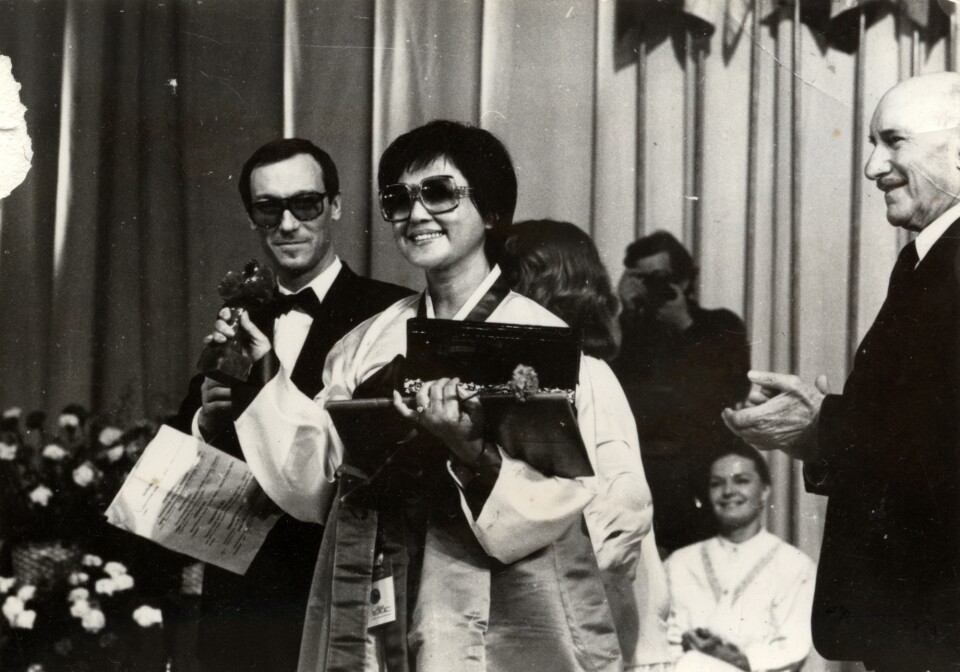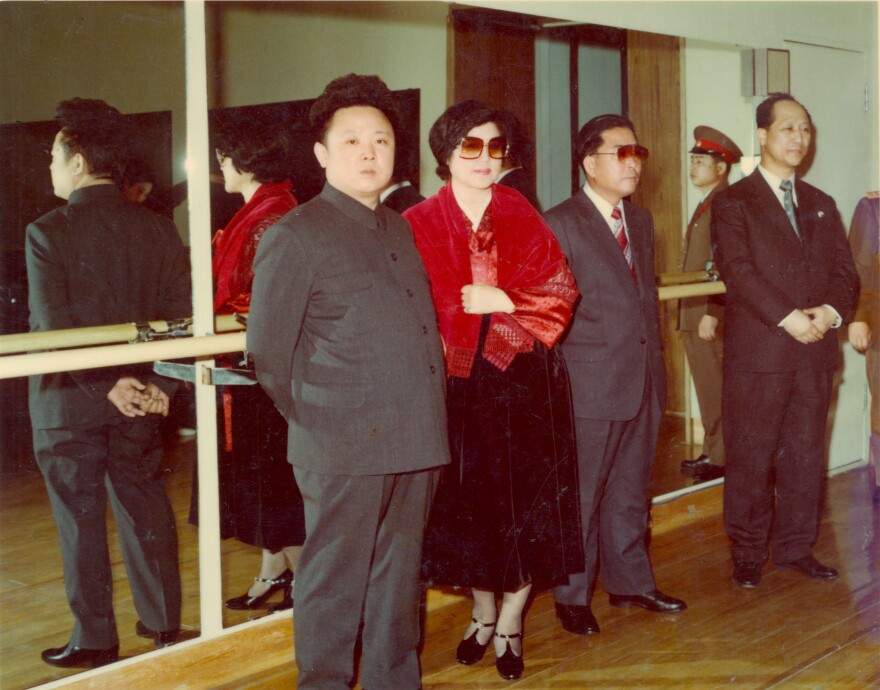The new documentary, “The Lovers and the Despot,” tells the true story of what happened in 1978 when Kim Jong-il ordered the kidnapping of a filmmaking couple from South Korea to jumpstart North Korea's movie industry; William Bell has revived the classic Stax sound; a new report shows that the music business is actually making money in the streaming age.
'The Lovers and The Despot': A filmmaker, an actress and Kim Jong-il
The documentary “The Lovers and the Despot” tells a story that’s so fantastical, it’s a wonder there hasn’t been a movie made about it until now.
In 1978, then-North Korean leader, Kim Jong-il, ordered the kidnapping of a famous South Korean filmmaking couple. After being brainwashed into making movies for the dictator, they finally escaped in 1986 when they convinced Kim to let them attend a film festival in Europe.
Shin Sang-ok was a successful film director and producer in the South Korean film industry and Choi Eun-hee was an equally successful actress. The two were married, but at the time of their abduction they'd been separated. As the story goes, she was in Hong Kong when she went missing only to show up in North Korea. When Shin Sang-ok went to find her, he also ended up in North Korea.
According to Robert Cannan and Ross Adam, the writers-directors of "The Lovers and The Despot," Kim thought a movie industry would do more than just serve as a propaganda arm for his rule.
In his mind he’s got these ideas of furthering economic success with his kind of remake of “Titanic.” Of course it wasn’t as successful as James Cameron’s film.
In the documentary, the filmmakers used archival footage and new interviews with Choi who, of the three main characters, is the only one still alive. But the most valuable element for the filmmakers was a trove of previously unheard audio tapes of conversations between Choi, Shin and Kim.
To hear the story click the play button at the top of this page. For highlights of the interview with Cannon and Adam see below.
Interview Highlights:
On finding the audio tapes of Kim Jong-il talking with Choi and Shin:
ADAM: Quite early on, we knew that Choi had this tape of their first conversation together with Kim, and that as part of this conversation there was something of an admission that he had kidnapped them. We knew that this was something they used to prove their innocence — that they were kidnapped and that they didn't go willingly. However, at the time, we didn't know that there were a whole bunch of other tapes. It really saved the day. Once we'd found these tapes, we knew we'd struck gold because we were already struggling to tell Shin's story and to really take people into Kim's world. Kim obviously is not someone we had access to. Shin was no longer alive to tell his story, but suddenly we had these audio tapes following the progression of their relationship.
CANNAN: And hidden away on one of these tapes was this conversation in Japanese whispered. It contained Shin's entire story up to where he'd got to at that point, which was this dilemma he was facing: What is he going to do now? Is he going to escape? He's given everything he's ever wanted with Kim Jung-il as this amazing producer, but under terrible circumstances. So this little dilemma he's having on tape became a really good enabler for us to create a kind of Faustian pact drama at the center of the film.

On skepticism about the abduction story:
ADAM: I'd say that myth still exists in South Korea to this day. That may be because most people haven't heard the tapes yet. It would be interesting to know, if our film comes out in South Korea, if that will change perceptions. A lot of people think the story is too farfetched to be true. They also are very aware that Shin was down-and-out and had lost his ability to make movies at the time that he went missing. This seems very convenient. Everyone knows that here's a guy who just wanted to make films. Suddenly he disappears, he turns up in North Korea and he's given everything by a dictator. He can make any film he wants.
On whether Shin did five years of hard labor in North Korea:
ADAM: Well, that's his story. Some people would question, Is that really true? But when we look at when the films appear to be made, or when they started appearing in Eastern European film festivals, there is a five-year gap, which is pretty hard to explain.
CANNAN: Also on his side is the fact that the Korean CIA vetted his story for a while. And reading his book, there's a lot of detail in there. Yes, he's a storyteller and there's always going to be this aspect: Can you trust these guys? They are inventive by their very nature. But it's a little bit too good. That detail had to be really pored over by these Korean CIA guys. So that's in his favor as well.

On Shin's Hollywood career post-North Korea:
CANNAN: He ended up making the "3 Ninjas" movie series as a producer, but he also co-directed with John Turteltaub ... That was the first film they worked on together and it was made for a very low budget, and suddenly they just sold it to Disney for a lot of money. And it made a lot of money back, so he did pretty well. But it was just a kids ninja film at the end of the day.
'This Is Where I Live': Soul singer William Bell returns to his roots
Back in the 1960s, there were two major producers of soul music: Berry Gordy’s Motown assembly line in Detroit; and the grittier sounds that came out of Stax Records in Memphis. Stax built its sound around its house band, Booker T & the MGs, and a stable of songwriters that included Isaac Hayes.
And then, there was singer/songwriter William Bell:
The original Stax Records, we were like a family there. For teenage kids, it was like going to university for us because we learned our craft and how to interpret songs. It was like a family.
Bell never reached the fame of label mate Otis Redding, but he wrote and recorded some classic songs, including “You Don’t Miss Your Water.”
Now 77-years-old, Bell recently released a new album on the revived Stax label. It’s called “This Is Where I Live,” and it re-captures that classic Memphis soul sound.




